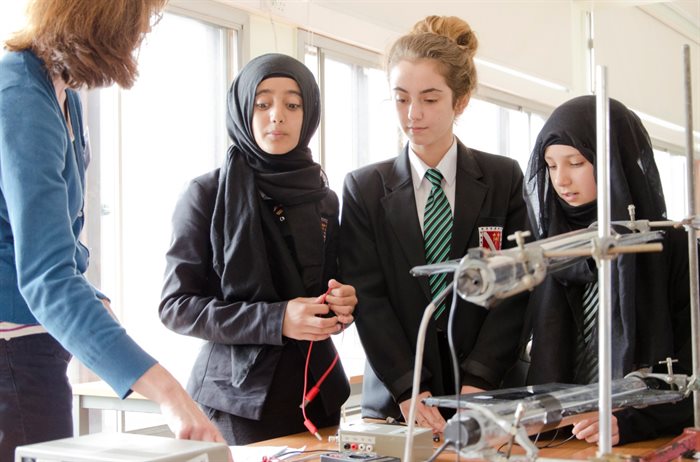Women of colour are deeply underrepresented in some STEM disciplines at the undergraduate level, principally physics/astrophysics/astronomy, computer science, math, aerospace engineering, civil engineering, electrical engineering and mechanical engineering.
 Women who persist in these fields, especially women of colour, experience isolation, microaggressions and sexual harassment (Barthelemy, McCormick, & Henderson, 2016; Gonsalves, Danielsson, & Pettersson, 2016; Johnson, Ong, Ko, Smith, & Hodari, 2017). However, little is known about the finer details of this underrepresentation: for example, the kinds of institutions where women of colour are markedly underrepresented and those in which they thrive; institutional policies and practices that lead to inclusive cultures; benchmarks about what constitutes an above-average departmental performance of intersectional inclusion. We are using quantitative analyses of physics graduation rates of women of colour at US and UK universities to create a portal of publically available data.
Women who persist in these fields, especially women of colour, experience isolation, microaggressions and sexual harassment (Barthelemy, McCormick, & Henderson, 2016; Gonsalves, Danielsson, & Pettersson, 2016; Johnson, Ong, Ko, Smith, & Hodari, 2017). However, little is known about the finer details of this underrepresentation: for example, the kinds of institutions where women of colour are markedly underrepresented and those in which they thrive; institutional policies and practices that lead to inclusive cultures; benchmarks about what constitutes an above-average departmental performance of intersectional inclusion. We are using quantitative analyses of physics graduation rates of women of colour at US and UK universities to create a portal of publically available data.
This project is a collaborative effort between the US and the UK.
The overarching goal of this project is:
To create a portal through which data on STEM graduation rates of women and women of colour at US and UK universities can be accessed.
There are three measurable objectives we will use to achieve this overarching goal. They are to:
- Compile US and UK institutional graduation data, by race and gender, for physics/astrophysics/astronomy, computer science, and mathematics and statistics.
- Build a public interface to allow users to access the data;
- Collect user analytics to improve the database.
Funding
This project is funded by the UKRI and ESRC and based at the University of Birmingham.
Further information
SBE-UKRI summary - Centering Women of Color in STEM: Data-Driven Opportunities for Inclusion
National Science Foundation summary - Centering Women of Color in STEM: Identifying and Scaling Up What Helps Women of Color Thrive